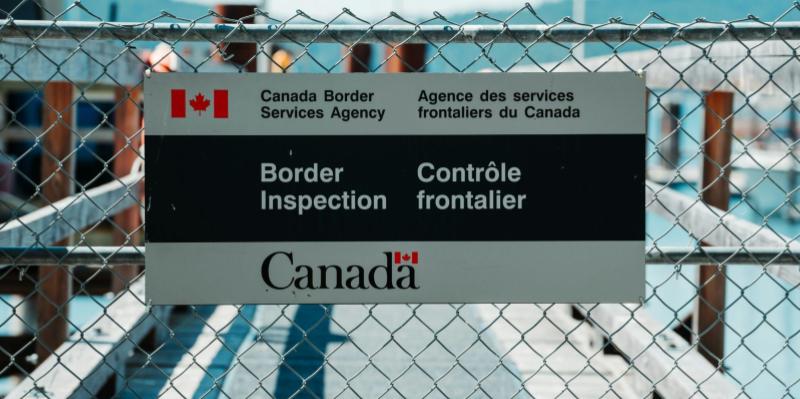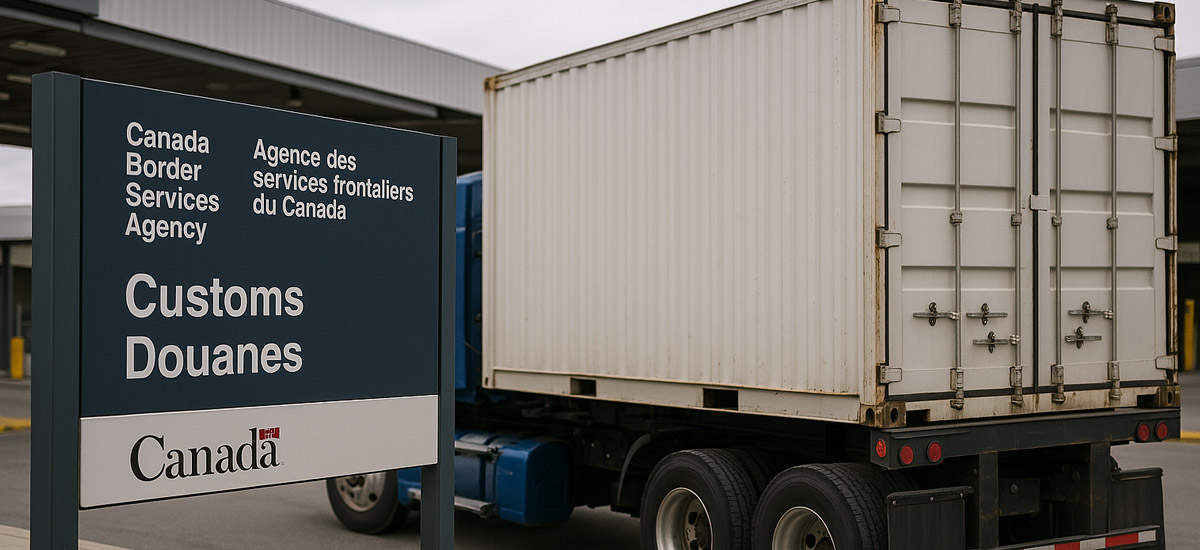What is RPP, and how do Release Prior to Payment Bonds work?
Introduction
A Release Prior to Payment Bond is a type of surety bond that is designed to ensure CBSA is paid any duties owed on commercial goods (and potentially services) being imported into Canada.
Canadian businesses often face the challenge of needing their imported goods released by customs before duties are fully paid. This is where Release Prior to Payment (RPP) becomes a vital tool.
For businesses working to maintain strong cash flow and avoid delays, RPP Bonds offer a practical solution, enabling goods to be released while ensuring compliance and protection for regulators.
RPP helps companies receive goods before payment to customs duties and taxes, aiding cash flow and streamlining operations.
At Bond Connect, we’re here to guide companies through obtaining these specialized bonds, streamlining trade and ensuring security every step of the way.
What is Release Prior to Payment (RPP)?
RPP allows businesses to have their goods released from customs before paying the applicable duties and taxes, which helps maintain operational cash flow and streamline supply chains.
By deferring these payments, importers can manage their funds more effectively, avoiding the immediate financial strain that might otherwise impact their liquidity or business operations.
Release Prior to Payment is especially beneficial for companies with high import volumes, as it reduces potential delays in obtaining goods while also minimizing warehousing and storage costs.
For businesses to participate in RPP, they are typically required to secure a surety bond—known as an RPP Bond—which serves as a financial guarantee that all duties, taxes, and fees will be paid to CBSA as required.
By leveraging RPP, businesses can manage inventory and supply chain needs more flexibly, avoid costly delays, and enhance overall operational efficiency.
RPP bonds allows importers to obtain goods while deferring duty payments, a process facilitated by the Canada Border Services Agency (CBSA).
Apply for Customs Bonds in Minutes
How Do Release Prior to Payment (RPP) Bonds Work?
Release Prior to Payment (RPP) Bonds are specialized surety bonds that enable Canadian importers to access their goods from customs before paying the associated duties, taxes, and fees.
These bonds act as a financial guarantee to the Canada Border Services Agency (CBSA), ensuring that all payments owed on the imported goods will eventually be settled, even if the payment is deferred.
Here are some of the key functions of RPP Bonds:
Guarantee of Payment
RPP Bonds serve as a financial guarantee to the Canada Border Services Agency (CBSA) that all duties, taxes, and fees associated with imported goods will be paid, even though those goods are released to the importer before payment is made.
Essentially, the bond assures CBSA that, regardless of the timing of actual payments by the importer, they will ultimately receive the required revenue.
As an example: when a business opts to use the RPP program to access their goods without immediate payment of customs duties, the CBSA requires an RPP Bond to mitigate the financial risk.
This bond, provided by a surety company, acts as a promise to CBSA that if the importer defaults or delays payment, the surety will step in to cover the outstanding amount.
For the CBSA, this bond provides security and encourages trust in the RPP system, as they can confidently release goods, knowing that payment is safeguarded by the surety.
For importers, this system provides valuable flexibility, allowing them to streamline customs processes and manage cash flow more effectively.

Calculation of Bond Amount
The amount required for a Release Prior to Payment (RPP) Bond is typically based on a percentage of the importer’s expected monthly duties and taxes.
This bond amount is carefully calculated to ensure there is adequate financial coverage for any duties, taxes, and fees that might be owed to the Canada Border Services Agency (CBSA) if the importer defaults.
Here are some of the important factors that are taken into account when the bond amount is being calculated:
Review of Monthly Import Volume
To establish the bond amount, CBSA assesses the importer’s average monthly import volume.
This involves calculating the total duties, taxes, and fees the importer is expected to pay each month based on the value and type of goods being imported.
Bond amount may also be determined as 50% of the highest monthly duties owed in the previous 12 month term.
Percentage-Based Coverage Requirement
CBSA can also require a bond amount set at a specific percentage of these monthly duties and taxes.
For example, this might be set at 50% or 100% of the average monthly duties and taxes, depending on factors like the importer’s history, creditworthiness, and risk profile.
Adjustments for High or Low Volume Importers
For high-volume importers or businesses with a proven record of reliable payment, the required percentage may be adjusted slightly lower.
Conversely, new or higher-risk importers may need to secure a bond amount closer to or even exceeding their monthly duties and taxes.
The required bond amount acts as a safeguard for CBSA, guaranteeing that even in cases of non-payment, there is enough coverage to recover owed duties.
For importers, the percentage-based requirement ensures that they have the flexibility to bring goods into the country without immediately tying up capital in customs fees, maintaining a balance between operational cash flow and customs compliance.
Ultimately, if you’re unsure about the amount of your RPP Bond needed, you should check on the CARM portal, or with a Border Services representative.
CARM Integration
RPP Bonds are integral to the CBSA’s CARM (Canada Border Services Agency’s Assessment and Revenue Management) project.
CARM is an evolving initiative aimed at modernizing how CBSA manages and collects customs duties, and it introduces new requirements for importers, including bond requirements for businesses looking to utilize the RPP program.
Importers need to ensure their bonds are compliant with CARM’s requirements to continue using RPP.
With CBSA’s evolving Assessment and Revenue Management (CARM) project, bond amounts may be periodically reviewed and adjusted to align with updated requirements and regulations.
This ensures that bond coverage remains sufficient as import volumes or CBSA standards change over time.
Security and Flexibility for Importers
For importers, RPP Bonds provide the flexibility to access goods immediately, which is especially valuable for maintaining supply chain efficiency.
This helps avoid potential delays and warehousing costs, allowing businesses to better manage inventory without waiting for duties to clear.
This includes assistance with the paperwork, financial assessments, and securing a bond through a surety provider.
Through RPP Bonds, importers benefit from greater limberness and security, knowing that their goods can be processed quickly while maintaining compliance with CBSA requirements.
For businesses with consistent import needs, RPP Bonds are a strategic asset that streamlines customs and strengthens cash flow management.

Benefits of RPP Bonds for Businesses
Release Prior to Payment (RPP) Bonds offer a range of benefits to Canadian importers, particularly those with high import volumes or a need for efficient cash flow management.
Here are some of the primary advantages of RPP Bonds for businesses:
Enhanced Cash Flow and Financial Flexibility
RPP Bonds allow businesses to defer duty and tax payments while still obtaining their goods immediately.
This helps maintain liquidity, as companies are not required to tie up cash in customs payments before their goods can be released.
This flexibility can be critical for businesses that rely on strong cash flow to cover operational expenses, pay suppliers, and invest in growth initiatives.
It’s important to note, that bonding underwriters may require your business to have a decent cash and equity position to be approved for bond issuance.
Operational Efficiency and Reduced Delays
By enabling goods to be released prior to full payment, RPP Bonds streamline the import process and reduce customs-related delays.
This allows businesses to maintain steady inventory levels, meet production or sales schedules, and fulfill customer orders without interruption.
Industries with just-in-time supply chain models, like manufacturing and retail, particularly benefit from this efficiency.
Cost Savings on Storage and Warehousing
When goods are held at customs due to pending duty payments, businesses may incur additional storage or warehousing costs.
RPP Bonds help avoid these expenses by expediting the release of goods, allowing companies to minimize or even eliminate storage fees, reducing overhead and optimizing their supply chain costs.
Greater Competitive Advantage
With faster access to goods, businesses can respond to market demands more quickly, giving them a competitive edge.
For example, retailers can keep shelves stocked with seasonal or high-demand items, while manufacturers can keep production lines running smoothly.
This responsiveness can enhance customer satisfaction and position the company favorably in competitive markets.
Reduced Financial Risk
An RPP Bond mitigates the financial risk for both the importer and the CBSA.
Should an importer face financial difficulties or default on duty payments, the bond provides a safety net by ensuring that CBSA receives the owed amount from the bond provider (the surety company).
This security minimizes potential losses for CBSA, making it easier for them to extend release privileges to importers.
Compliance with CARM Requirements
With the CBSA’s evolving CARM (Canada Border Services Agency’s Assessment and Revenue Management) project, RPP Bonds are becoming essential for businesses aiming to comply with the new customs requirements.
By having an RPP Bond in place, companies align with CARM’s standards, ensuring they meet current and future customs regulations while enjoying the benefits of RPP.
In the past, customs brokers were able to aggregate importer security requirements with a single bond. However, since CARM – this is no longer the case. Each importer must provide their own bond / security deposit.
There is a 6-month grace period from October of 2024 for each individual importer to provide this new security requirement. We offer established customs brokers a solution where they can assist each of their importer clients with organizing bond issuance. Contact us for more details!
Support for Business Growth
As a business’ import volume grows, RPP Bonds can be adjusted to accommodate higher duties and taxes, allowing companies to scale without customs restrictions.
With Bond Connect’s support, businesses can easily modify their bond limits to match increased imports, supporting growth without facing logistical or financial barriers at customs.
Bond Connect provides guidance on determining the appropriate bond amount and financial assessments and can easily issue bond riders for security amount changes.
This partnership minimizes administrative burdens, allowing businesses to focus on their core operations.

Changes to the Release Prior to Payment Program
Please Note: CBSA’s new CARM program now accepts electronic format bonds via API that we integrate with our underwriters. No more paper work and waiting for mail / couriers!
The Release Prior to Payment (RPP) Program allows participants to obtain the release of goods from the CBSA before the final accounting and payment of duties and taxes
When CARM becomes the official system of record, obtaining the release of imported goods prior to accounting and payment of duties will significantly change for importers.
They will no longer be able to use their customs broker’s RPP security to clear shipments before paying duties and taxes.
Importers who want to participate in the RPP program will be required to post their own financial security.
They will have the following options:
Option 1:
A financial security instrument for 50% of their highest monthly accounts receivable (inclusive of GST) with a minimum financial security of $5,000 per import program (RM)
Option 2:
Cash security deposit for 100% of their highest monthly accounts receivable (inclusive of GST)
The current RPP program remained in effect until October 2024, and now the new requirements are in affect with a 6-month grace period.
In anticipation of these changes, the CBSA has developed the following plan to help importers transition to the new requirements, which will include instructions on how to:
- Calculate their security
- Post a bond
- Make a cash security deposit
Conclusion
What is RPP?
Release Prior to Payment (RPP) is a valuable program designed to support Canadian importers by allowing them to access their goods before fully paying duties, taxes, and fees.
By using RPP, businesses can optimize their cash flow, reduce storage costs, and streamline their supply chain processes.
At the heart of this program are RPP Bonds, which provide CBSA with a financial guarantee that these payments will be met, even though goods are released beforehand.
RPP Bonds are essential for maintaining compliance with CBSA’s requirements, especially as customs regulations evolve under initiatives like the CARM project.
For importers, this program offers a strategic advantage, enabling faster access to inventory and more agile business operations.
With the right RPP Bond in place, secured through a trusted brokerage like Bond Connect, businesses can confidently leverage the benefits of RPP, keeping their operations efficient and competitive while ensuring full compliance with customs obligations.






